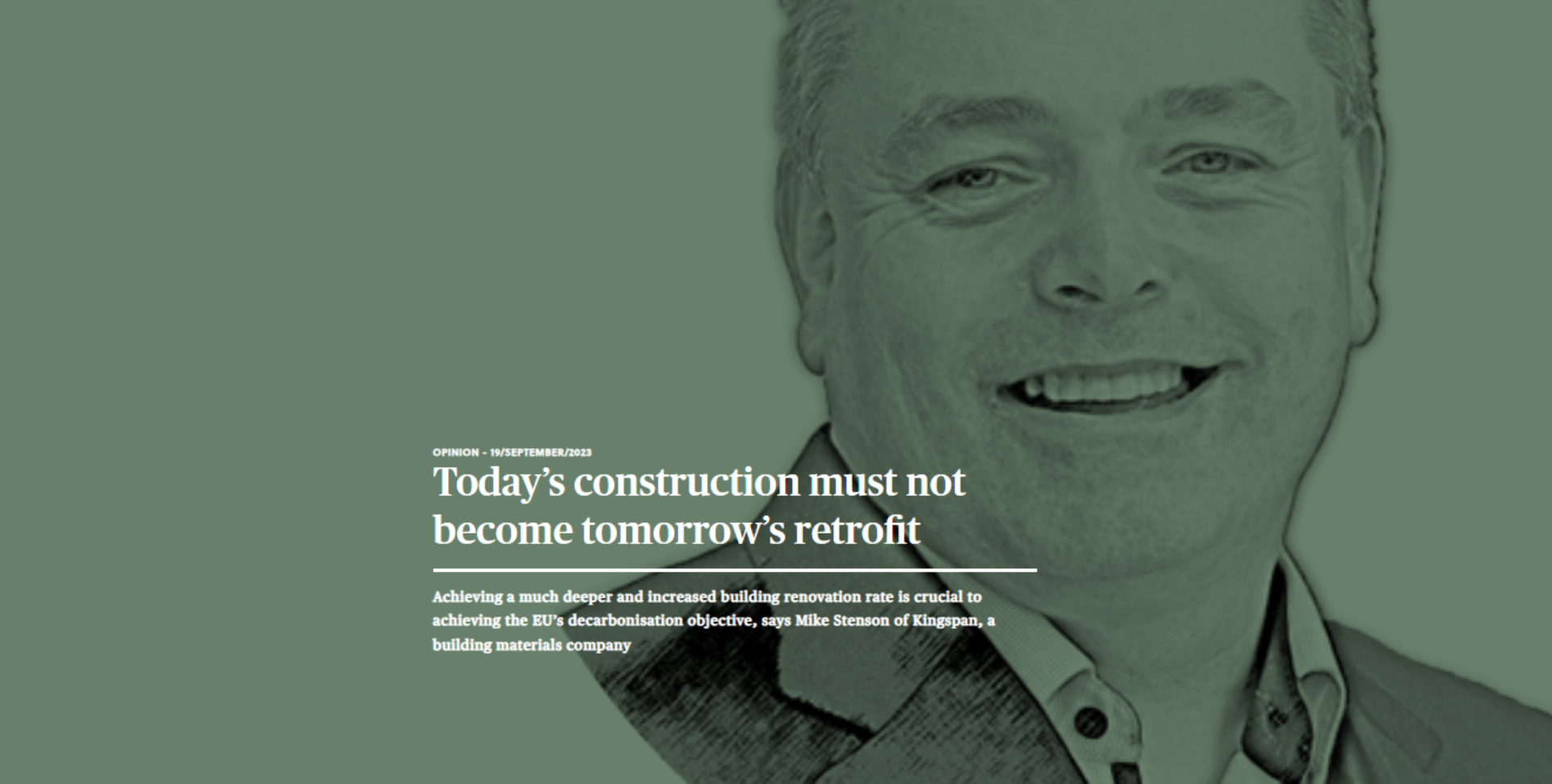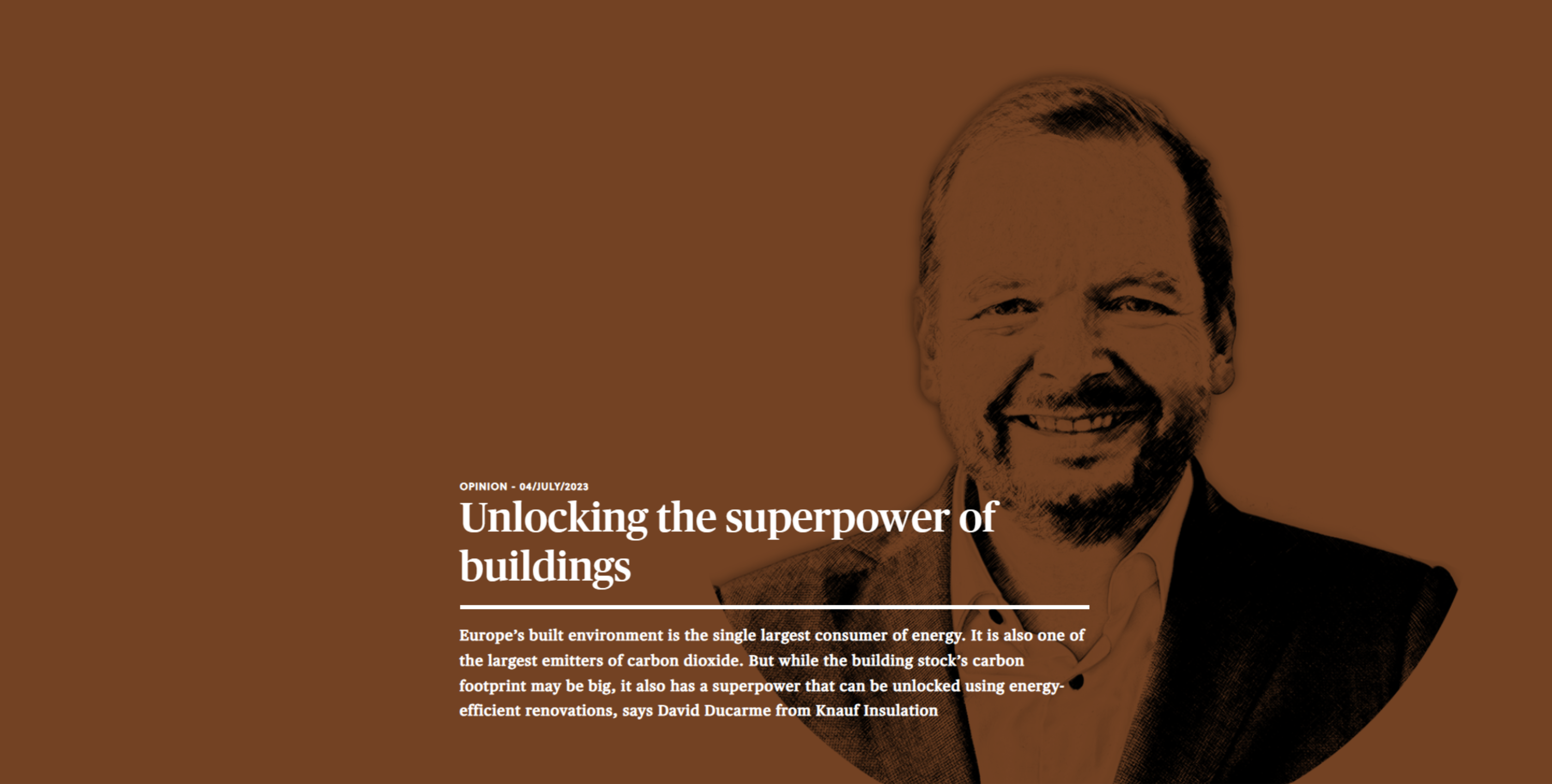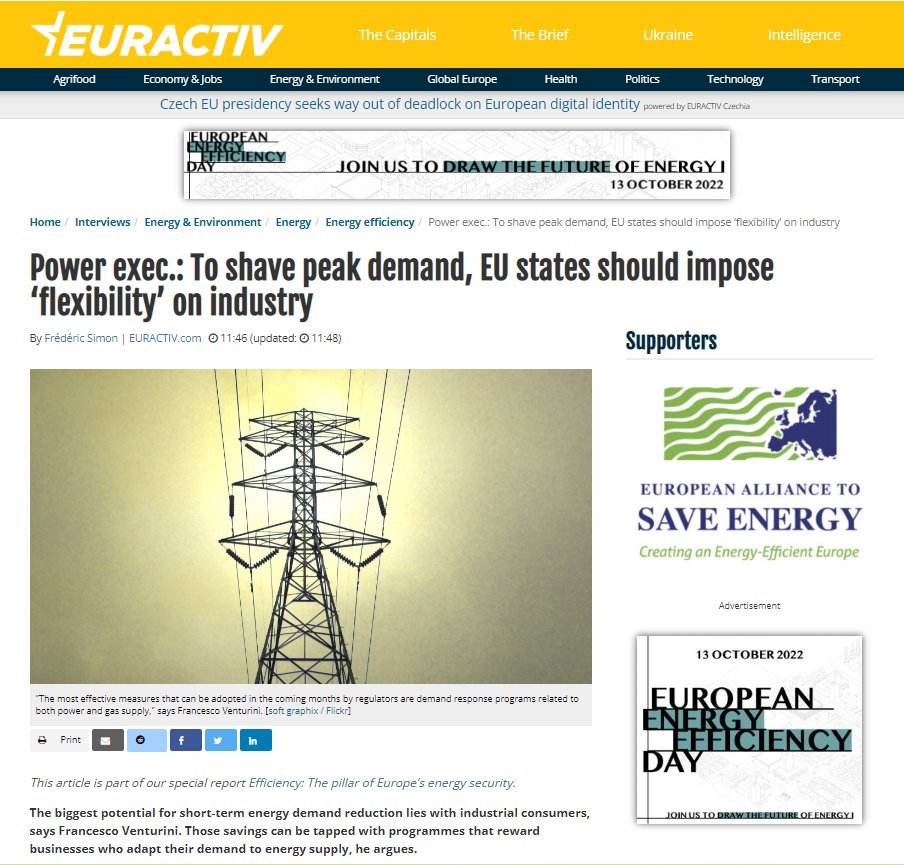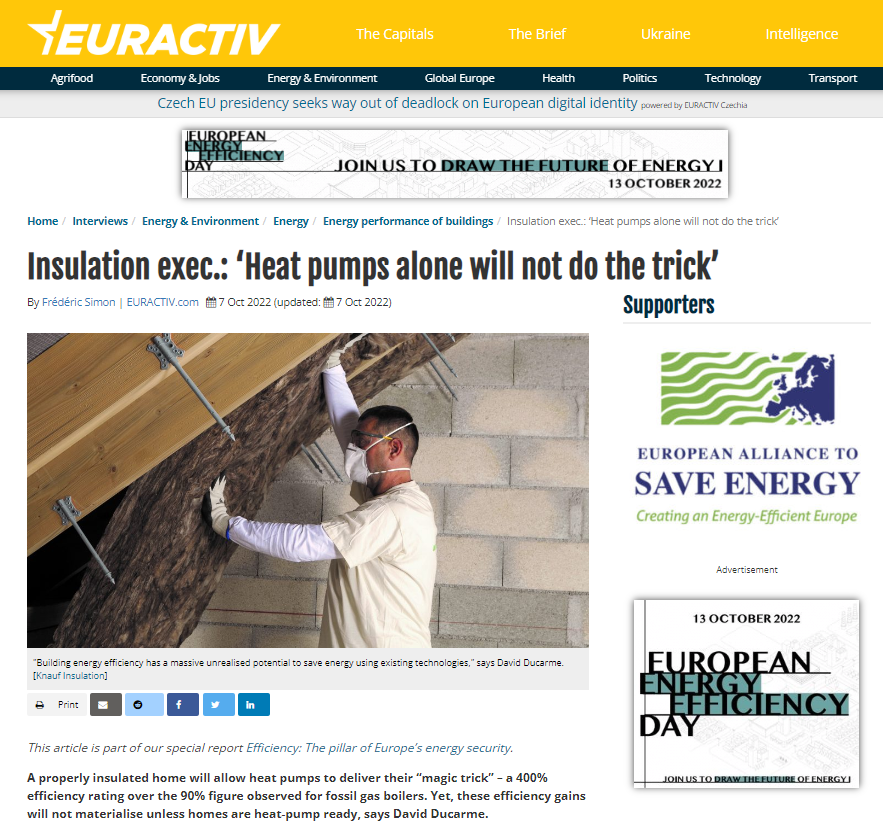Today’s construction must not become tomorrow’s retrofit

“Achieving a much deeper and increased building renovation rate is crucial to achieving the EU’s decarbonisation objective” says Mike Stenson of Kingspan in Foresight Climate & Energy, ahead of the second edition of European Energy Efficiency Day.
The way we build is evolving dramatically, with new materials, systems and technologies making it possible to create architecture that is more energy efficient, resilient and sensitive to the needs of its inhabitants than ever before.
To meet the Intergovernmental Panel on Climate Change pathway to limit the global rise in temperature to 1.5°C, it is essential for all sectors to decarbonise rapidly over the next ten years.
Buildings are currently responsible for 39% of global energy-related carbon emissions: 28% from operational emissions, from energy needed to heat, cool and power them, and the remaining 11% from materials and construction.
Read the full article in Foresight Climate & Energy.
More information on Energy Efficiency Day here & Register here.




